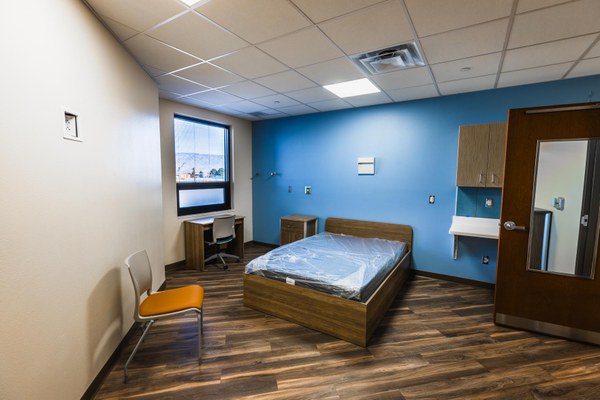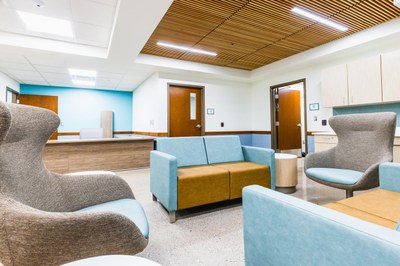Medical Respite
Find information about medical respite services at the Gateway Center.
Contact
Heading Home
505-908-0721
What is Medical Respite?
Construction on the Medical Respite Center was completed in January 2025 and opened in February 2025.
The 22,500-square-foot center provides a safe, medically supervised space where people will receive continued treatment and recover from illness or injury.
Success Stories:
The Medical Respite Collaborative:
Heading Home has been selected as the operator of the Medical Respite Center through a competitive RFP process. Albuquerque Health Care for the Homeless is the lead medical respite provider and oversees integrated health care, public benefits enrollment, exit to housing, and coordination with specialty care. First Nations provides medical care to patients.
The Medical Respite Center operates around the clock and is comprised of 50 beds in individual and shared rooms. Patients will stay, on average, 45 to 60 days. In its first year, the Center will serve an estimated 400 individuals.
Referrals
UNM Hospital serves as the primary referral source, including transporting individuals from UNM-H to the Center.
Albuquerque Health Care for the Homeless, and First Nations Community Healthsource also refers patients.
The City has allocated $900k in Housing Voucher funding for the Medical Respite Program. Albuquerque Health Care for the Homeless will distribute vouchers using this funding and will also navigate patients to other affordable housing resources as appropriate. Patients will also have access to physical therapy and other specialty care with a goal of connection to a permanent primary care provider.


Need For Medical Respite:
A report by Albuquerque Health Care for the Homeless highlights the need for Medical Respite. It cites data from the National Health Care for the Homeless Council that states readmission to the hospital is two times higher for individuals who are homeless. It also reveals that patients experiencing homelessness stay about four days longer per admission than other low-income patients.
Recent homeless mortality data underscores this urgent need for medical respite care – people who are unhoused die 20 years earlier than housed people and have 60% greater mortality risk than other low-income individuals.
